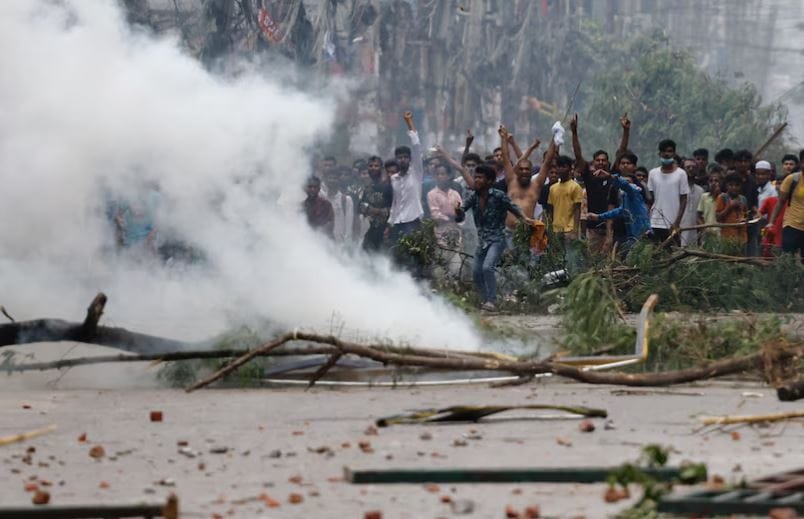Bangladesh is engulfed in a deepening crisis as protests against government job quotas intensify, leading to further casualties and a nationwide communication blackout. The unrest, initially sparked by student grievances, has now morphed into a broader movement fueled by economic woes and political tensions.
Protests Turn Deadly Amidst Communication Blackout
Three more lives were lost on Friday, July 19th, as protesters clashed with security forces. The government’s attempt to quell the unrest by cutting mobile telephone services the previous day has been exacerbated by a wider communication disruption, leaving the nation largely incommunicado.
Defiant Protests and Political Discord
Despite a government order prohibiting public gatherings and processions, protesters remain defiant. Exiled acting chairman of the main opposition Bangladesh Nationalist Party (BNP), Tarique Rahman, has called for solidarity with the students, accusing the government of arresting opposition leaders and activists.
Economic Grievances Fueling Unrest
While the protests were initially triggered by the controversial job quota system, underlying economic grievances, including high unemployment, inflation, and dwindling foreign reserves, are now fueling the unrest. The protests have exposed deep-seated political faultlines between those who fought for Bangladesh’s independence and those accused of collaborating with Pakistan.
Communication Shutdown and Cyber Attacks
Internet and overseas telephone calls were crippled on Friday, with major news websites and social media platforms remaining inactive. Television news channels and state broadcaster BTV went off the air, deepening the information vacuum. Additionally, the official websites of the central bank, the prime minister’s office, and police were hacked by a group calling itself “THE R3SISTANC3.”
Key Learning Points
| Point | Description |
|---|---|
| Rising Death Toll: | Three more deaths reported on Friday, bringing the total to at least 20 since the protests began. |
| Communication Blackout: | Nationwide disruption of telecoms, internet, and television news channels intensifies the crisis. |
| Defiant Protests: | Protesters continue to defy the government’s ban on public gatherings and processions. |
| Economic Woes: | High unemployment, inflation, and dwindling foreign reserves exacerbate the unrest. |
| Political Tensions: | The protests have exposed deep-seated political faultlines within Bangladeshi society. |
| Cyber Attacks: | Government websites were hacked by a group protesting the violence against students. |
In Summary:
The situation in Bangladesh remains volatile, with the death toll rising and the communication blackout amplifying the crisis. The protests, initially focused on job quotas, have evolved into a wider movement fueled by economic grievances and political tensions. The government’s response, including communication disruptions and arrests, has further inflamed the situation. The international community is closely monitoring the developments in this South Asian nation.
Soumya Smruti Sahoo is a seasoned journalist with extensive experience in both international and Indian news writing. With a sharp analytical mind and a dedication to uncovering the truth, Soumya has built a reputation for delivering in-depth, well-researched articles that provide readers with a clear understanding of complex global and domestic issues. Her work reflects a deep commitment to journalistic integrity, making her a trusted source for accurate and insightful news coverage.



